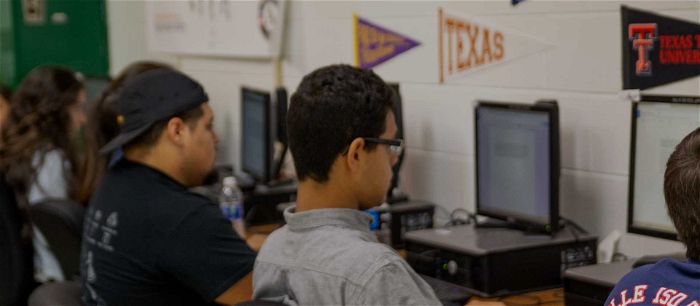July 9, 2018
At a Glance
Students who earn college credits by taking a college-level course while in high school are more likely to enter college and succeed. This paper encourages states to incorporate into their accountability systems measures related to earning college credit while in high school.
Earning college credit in high school matters to students and parents. Students who earn college credits by taking a college-level course while in high school are more likely to enter college and succeed. Through these experiences, students become familiar with college expectations, academic behaviors, and habits of mind; get a head start on postsecondary education and gain academic momentum toward a degree or credential; and begin to develop a college identity. Additionally, just as states should know whether students are progressing toward and reaching certain benchmarks of college and career readiness, they should also know whether high school students are exceeding those goals by taking the advanced courses that further solidify their transition to college and put them a step ahead once they arrive. Policymakers and educators who value this indicator for key student subgroups can drive improvements in outcomes for low-income and minority students who are historically less likely to earn a postsecondary degree or credential.
There is clear evidence that earning college credit prior to postsecondary enrollment is a predictor of college success. As a result, both Achieve and Jobs for the Future have encouraged states to incorporate into their accountability systems measures related to earning college credit while in high school. The first section describes the three most common models of earning college credit in high school: Advanced Placement (AP), International Baccalaureate (IB), and dual enrollment. The second section describes the research that shows the positive relationship between earning college credit while in high school and later college success. The third section looks at the landscape of current state policies on incorporating college course taking into accountability systems and highlights different state approaches in both accountability formulas and public reporting. The paper concludes with a set of recommendations for states interested in valuing students earning college credit while in high school in state accountability systems and provides concrete steps for ensuring that those policies serve all students.
Related Content

Early College Expansion Partnership
We're expanding a proven model for improving high school students' success in the Rio Grande Valley and the Denver Metro regions. We’re expanding a proven model for improving high school students’ success in the Rio…

STEM Early College Expansion Partnership
We're expanding a proven model for improving high school students' success by bringing STEM college courses into the high school classroom. We’re expanding a proven model for improving high school students’ success by bringing STEM…

Early College
Earning college credit in high school is a proven way for low-income students to get a jump on a college degree. JFF leads expansion of this national model. Earning college credit in high school is…